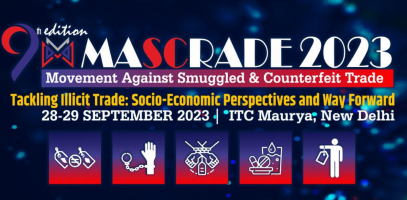
Smuggling and counterfeiting are global issues that threaten economic progress, public health, and social stability. Illicit trade includes complex and interconnected socioeconomic elements that are driven by a variety of factors such as corruption, technical improvements, and consumer desire for low-cost and counterfeit goods, among others.
The consequences of smuggled and counterfeit products commerce put consumers' well-being, efficient enterprises, and effective governance at risk. Because of its far-reaching impact on economies globally, illicit trade is often referred to as the crime of the twenty-first century, affecting both industrialized and emerging economies.
Despite global attempts to combat it, illicit commerce continues to be a lucrative business for illicit market operators, resulting in huge losses for companies, governments, and society as a whole. Illicit trading can substantially impede India's objective of becoming a $5 trillion economy by limiting its economic potential.










